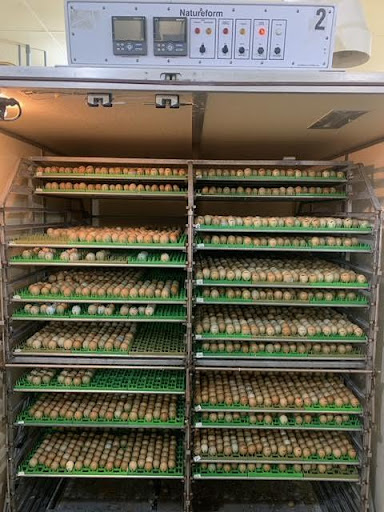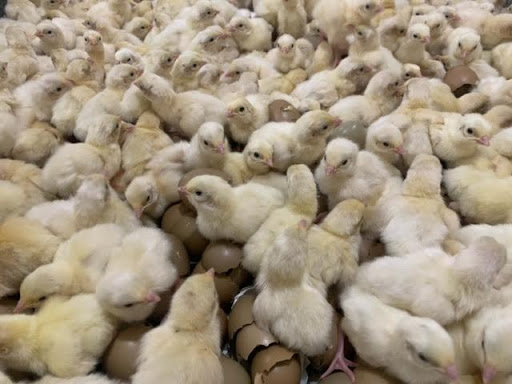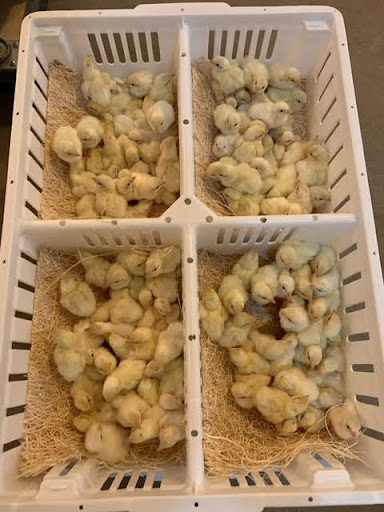Keagan Strange, our Hatchery Manager at MacFarlane Pheasants, was among the many outstanding presenters at our13th International Pheasant Management Seminar on March 6th-9th, 2022. The topic he presented was about short incubation periods during egg storage (SPIDES) to increase hatchability.
The theory behind SPIDES is based on mimicking how hens behave in the wild. When hens sit on a nest of eggs, they are briefly warmed up. The SPIDES warming treatments help eliminate stress on the embryos during storage. When eggs are stored for more than a week before being set in an incubator, less eggs will hatch. When they are stored for longer than 14 days, the hatch loss can be substantial. It is not always possible to set all eggs within seven days of the hens laying. But, when warming treatments are implemented with eggs set beyond the ideal time, researchers have increased hatchability. Each treatment is approximately 4-6 hours in the incubator before returning to the cooler for additional storage. This treatment helps bring the cells in the embryo to a more sustainable stage that can withstand the stress of storage better. “For the best results, the eggs should be treated before the hatch starts to fall, with treatments every 6-7 days. While the heating speed and final temperature are both very forgiving, even cooling after treatment will help maximize the impact. Warming the eggs too often or too long will limit the value of using SPIDES, and cumulative time above 32 degrees celsius should not exceed 15 hours.” Lohman Information, Vol 48 (2), Oct. 2013.
In our hatchery, Keagan did his own research. In his presentation, he explained the number of trials his crew did and demonstrated the results with charts. He would be an excellent source if you are interested in the SPIDES process and would like to see the details of his research. I will share the final results to whet your appetite to gain more information. After three different trials, with varying set dates and treatment dates, our hatchery crew found that the benefits of SPIDES included improved fertility, hatchability, efficiency, and increased profits. If you want to discuss the SPIDES process in more detail, Keagan can be contacted at [email protected].


